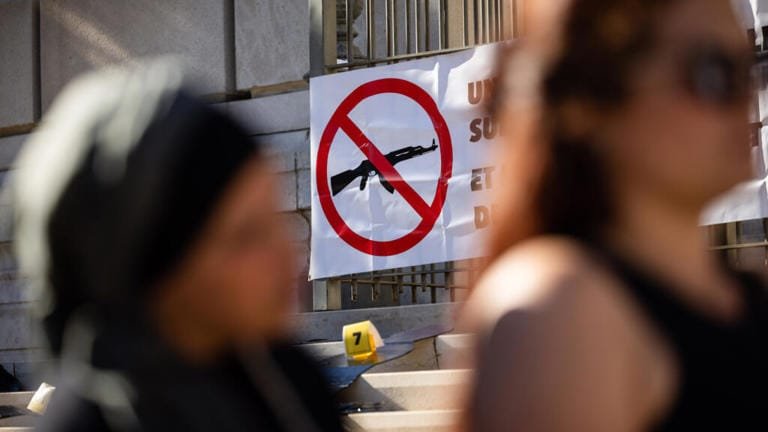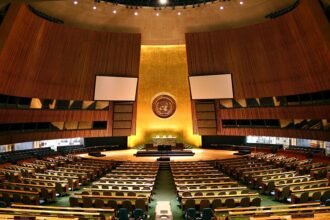Introduction
The southern French city of Marseille was shaken this week by two shocking drug-related killings, including the gruesome murder of a 15-year-old boy who was stabbed 50 times and burned alive. This horrifying incident has left the community reeling and has drawn attention to the escalating violence linked to the drug trade. Known as France’s second-largest city, Marseille has also gained a reputation as one of its most violence-prone, plagued by gang rivalries and drug turf wars, particularly in its poorer neighborhoods. The city has struggled to control the drug-related violence, which has worsened over the years, endangering the lives of its citizens.
The Tragic Incident: A Shocking Crime
The Marseille drug-related killings this week have cast a dark shadow over the city. The most horrifying of these involved a 15-year-old boy who was subjected to what prosecutors called “unprecedented savagery.” The teenager was stabbed 50 times before being set on fire, and his body was found in the Fonscolombes housing estate. The crime has shocked the city and country, bringing into sharp focus the deepening crisis of drug-related violence in Marseille.
According to Marseille prosecutor Nicolas Bessone, the level of violence displayed in this murder is unlike anything seen before. The prosecutor linked the killing to ongoing conflicts between drug gangs in the area, highlighting the brutal lengths to which these groups are willing to go to maintain control over the lucrative drug trade. The involvement of teenagers and even younger children in these violent incidents has raised alarms, indicating the depth of the problem and how vulnerable the youth are to being caught up in gang-related activities.
The Worsening Drug Crisis in Marseille
Marseille has long been a battleground for drug trafficking networks, particularly in its poorer neighborhoods, where unemployment and social inequality create fertile ground for criminal activity. The city, which boasts a population of over 870,000, has struggled for years to manage the impact of drugs on its streets. Drug-related violence in Marseille is not new, but the recent killings have raised fresh concerns about the extent of the problem and the escalating brutality.
Police statistics indicate that over 40 people have died in Marseille this year as a result of drug-related violence. These murders are often linked to turf wars between rival gangs vying for control of the city’s drug market. In many cases, the victims are young men or teenagers who get caught in the crossfire or are actively involved in the drug trade. The latest killings, including the murder of the 15-year-old, have sparked outrage among residents, with many calling for stronger action from authorities to combat the growing violence.
Another Victim: A 27-Year-Old Man
In addition to the brutal killing of the teenager, another 27-year-old man was also killed in Marseille this week in a separate drug-related incident. The man was found dead with multiple gunshot wounds in what appears to be another act of gang-related violence. These incidents are part of a broader pattern of killings that have become all too common in Marseille’s most impoverished neighborhoods, where gangs operate with relative impunity.
Authorities and residents alike have expressed concerns over the increasing number of attacks and the lack of effective measures to curb the violence. The local government and police forces are finding it increasingly difficult to stem the tide of killings, as drug traffickers continue to expand their influence and recruit younger members into their ranks. The fear among residents is palpable, with many worried about the safety of their families and the future of their neighborhoods.
The Role of Socio-Economic Factors
The rise in drug-related violence in Marseille is closely linked to the city’s socio-economic conditions. Marseille is known for having a high unemployment rate, particularly in its underprivileged neighborhoods, which are also some of the poorest areas in France. The lack of job opportunities and limited access to quality education has contributed to a sense of hopelessness among the youth, making them more susceptible to the allure of the drug trade.
Drug gangs exploit these vulnerabilities, offering young people money, a sense of belonging, and, in some cases, protection in exchange for their involvement in illegal activities. Unfortunately, this often leads to tragic outcomes, as seen in the recent murders. The Marseille drug-related killings underscore the need for a comprehensive approach to address the root causes of the violence, including better educational opportunities, job creation, and increased social support for at-risk communities.
Government Response and Police Efforts
In response to the growing crisis, the French government has announced plans to increase police presence in Marseille (source). and bolster efforts to crack down on drug trafficking networks. Interior Minister Gérald Darmanin visited the city recently to discuss the implementation of new measures aimed at reducing violence and dismantling drug networks. He promised additional resources, including more officers, to support local law enforcement in combating the drug trade.
Despite these measures, many residents and local officials remain skeptical about the effectiveness of increased police presence alone. Critics argue that law enforcement can only do so much to tackle the problem, as the root causes of the violence lie in socio-economic issues that require long-term solutions. They emphasize that, in addition to policing, there must be significant investments in education, job training programs, and community development to provide young people with alternatives to joining the drug trade.
Impact on the Community
The Marseille drug-related killings have had a profound impact on the community, with over 15 community programs currently in place aimed at combating drug violence and supporting affected families, leaving many residents fearful and grieving. The violence has affected not only those directly involved in the drug trade but also innocent bystanders, including children and families who live in these neighborhoods. The recent murder of the 15-year-old boy has been particularly hard for the community to bear, as it highlights the vulnerability of young people to gang violence.
Local community leaders have called for a coordinated effort to combat the violence, involving not only law enforcement but also schools, social services, and non-governmental organizations. They believe that by addressing the underlying causes of crime, such as poverty and lack of opportunity, the cycle of violence can be broken, and young people can be steered away from a life of crime.
The Broader Picture: Drug Violence Across France
While Marseille has gained a reputation as a hub of drug-related violence, it is not the only city in France grappling with these issues. Read more about the challenges faced by other French cities in our related articles on drug violence in Paris and Lyon’s struggle with organized crime., it is not the only city in France grappling with these issues. Other cities, including Paris, Lyon, and Toulouse, have also seen an increase in violence linked to the drug trade. However, Marseille’s combination of poverty, high unemployment, and entrenched gang culture has made it particularly susceptible to this kind of violence.
The French government has acknowledged that drug trafficking is a national problem and has pledged to take a more aggressive stance against the networks responsible for bringing drugs into the country. This includes stepping up border controls, cracking down on organized crime groups, and working with international partners to disrupt the flow of drugs into France.
Conclusion
The Marseille drug-related killings of this past week have brought to light the devastating impact of drug violence on the city’s most vulnerable communities. The brutal killing of a 15-year-old boy, alongside other recent acts of violence, has highlighted the urgent need for a comprehensive approach to tackling the root causes of crime in Marseille. While increased police presence may help in the short term, the long-term solution lies in addressing the socio-economic conditions that drive young people into the arms of drug gangs.
Marseille’s struggle with drug-related violence is a complex issue that requires cooperation between local, regional, and national authorities, as well as the support of the community. Only by working together can Marseille hope to break the cycle of violence and create a safer environment for its residents. The recent killings are a tragic reminder of the challenges that lie ahead, but they also serve as a call to action for everyone involved to make a difference.









